Education
Ruth Lapidoth
Lawyers in Germany and Austria
German and Austrian women were first allowed to enter careers in law in the mid-1920s, following rules permitting their admittance to universities at the turn of the century. Although women were a small proportion of all lawyers, judges, and prosecutors in Germany and Austria, Jewish women were a significant group among those women, and they often faced both religious and gender-based discrimination.
Rachel Mordecai Lazarus
Learned Women in Traditional Jewish Society
The long-standing idea that women are either not fit to be educated or do not need to be educated has deep roots in Jewish history. Yet in spite of these very real disabilities, there seem always to have been a handful of women in traditional Jewish communities who became educated.
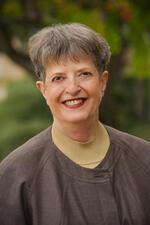
Sara Lee
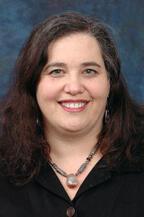
Lori Lefkovitz
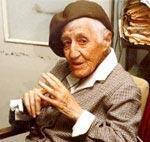
Nehama Leibowitz
Although Nehama Leibowitz refused to acknowledge that she was a revolutionary in any way, ultimately her unique achievements changed Orthodox society’s perception of a woman’s capabilities and undoubtedly opened doors for the female Torah scholars who followed. Through her teaching, Leibowitz brought numerous people, including non-Jews, to a new conception of Torah study.
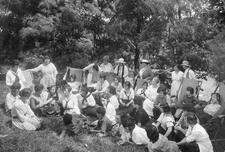
Leisure and Recreation in the United States
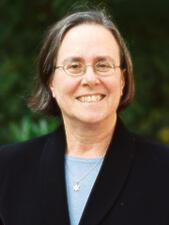
Anne Lapidus Lerner
Anne Lapidus Lerner is a pioneering scholar of Jewish women’s studies and was the first woman vice chancellor of the Jewish Theological Seminary. Lerner has established and fostered a long-lasting legacy through the teaching and mentorship of generations of students and dedication to Jewish learning. In 2017 she was awarded the Mathilde Schechter Award by the Women’s League for Conservative Judaism.
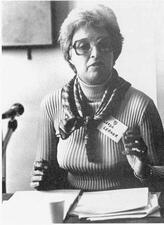
Gerda Lerner
Entering the field of United States history in 1966, Gerda Lerner blazed a new professional path that led to the establishment of the field of women’s history. Lerner’s force and commitment made her impervious to the ridicule with which the male-dominated profession initially responded to the notion of women’s history.
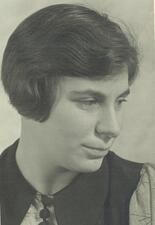
Hilde Levi
Hilde Levi was an exceptional physicist who worked first in Germany and later in Denmark, where she became a prominent researcher. She belonged to the second generation of women scientists in Germany, who were able to participate on a relatively equal basis in scientific institutions and in academia.
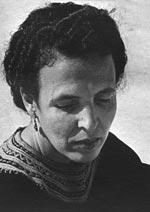
Sara Levi-Tanai
Sara Levi-Tanai was the founder, choreographer, and artistic director of the Inbal Dance Theater. With an original style, she established a unique dance theater that combined the East and West and the early history of the Nation of Israel with the present, as well as creating a new language of movement in the world of dance that is called “the Inbal language.”
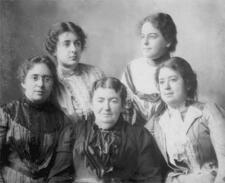
Bertha Szold Levin
Bertha Szold Levin was a Baltimore educator, civic leader, and Jewish activist in the early twentieth century.
Nora Levin
Research librarian and educator Nora Levin’s books sparked controversy among historians, but she helped shape popular understanding of modern Jewish history.
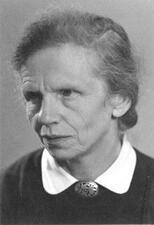
Emma Levine-Talmi
Politician and writer, Emma Levine-Talmi, grew up in a liberal Jewish home in Warsaw before immigrating alone to Palestine in 1924 at the age of nineteen. She was active in Kibbutz life before becoming a member of Knesset for the Mapam party. During her time in the Knesset, she engaged in social issues, including, equal rights for women.
Elma Ehrlich Levinger
Early twentieth-century author and educator Elma Ehrlich Levinger wrote over thirty books for children and several for adults—all of which emphasize the importance of maintaining Jewish identity in America.
Hassia Levy-Agron
According to the judges who in 1998 awarded her the Israel Prize in the field of dance, Professor Hassia Levy-Agron was remarkable for her artistic and educational contributions over the previous fifty years, as a dancer, choreographer, teacher, and educator who produced many generations of dancers, creators of dance, and dance teachers.
Ruth Lewinson
Margaret Seligman Lewisohn
Margaret Seligman Lewisohn—education advocate, philanthropist, art collector, and college trustee—did not just give generously to education causes. As the head of the Public Education Association, Lewisohn helped make the community as passionate about education as she was.
Bella Lewitzky
Bella Lewitzky, a maverick in the world of modern dance, distinguished herself as a preeminent performer, choreographer, artistic director, educator, public speaker, and civic activist. Defying norms that posited New York City as the center of American dance, she maintained the Lewitzky Dance Company in Los Angeles. She was known for two highly publicized encounters with the federal government and risking professional ostracism to stand upon principle.
Rosina Lhévinne
Rosina Lhévinne was one the most noted pianists of the last century, though she dedicated the majority of her career to teaching and supporting the career of her husband. One of the last artists in the nineteenth-century Russian pianistic tradition, she taught some of the most famous musicians of the 20th century at The Julliard School in New York.
Librarians in the United States
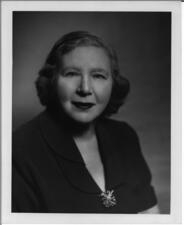
Tehilla Lichtenstein
Tehilla Lichtenstein co-founded the Society of Jewish Science with her husband as an alternative to Christian Science, creating a small but passionate following and carving a place for herself as a congregational leader.
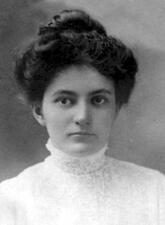
Lillian R. Lieber
Frustrated with the way math is taught in schools, Lillian R. Lieber created unconventional, popular books to excite young readers and incite their curiosity.


